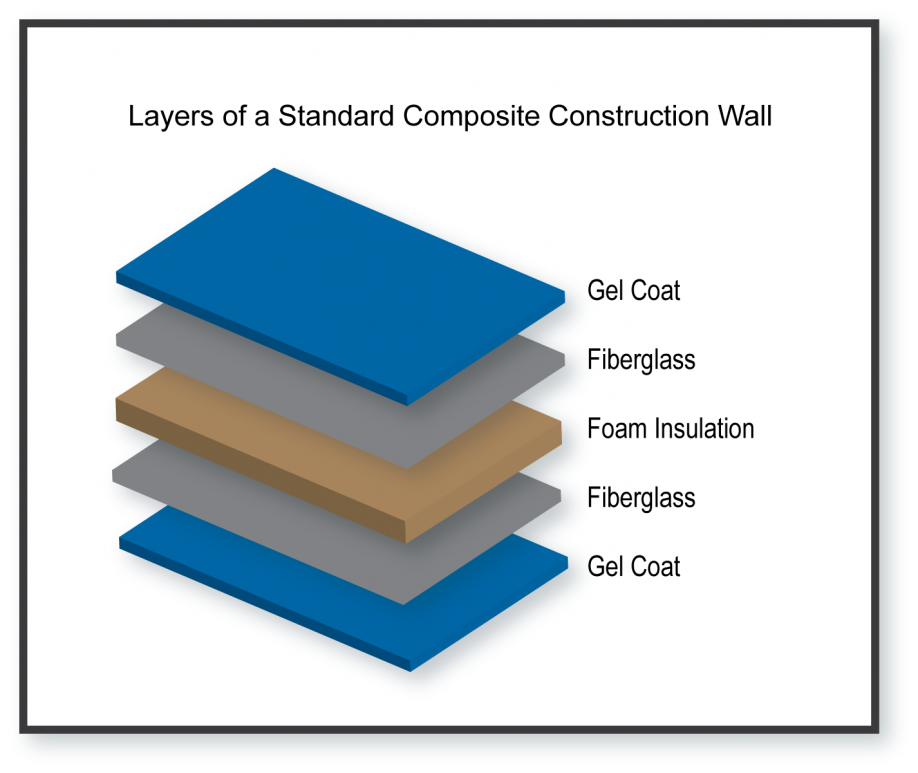Innovative Composites in Modern Structure Projects
From Waste to Marvel: How Recycled Composites Are Revolutionizing Different Applications
As sectors worldwide are increasingly focusing on sustainability and ecological obligation, the utilization of recycled composites has actually arised as a transformative remedy throughout different sectors. From enhancing the efficiency of automotive elements to supplying lasting choices in building materials, the applications of recycled composites are promising and vast. By repurposing waste products into ingenious composite structures, suppliers are not just reducing their environmental footprint but likewise opening a world of possibilities for developing long lasting, reliable, and eco-friendly products. The implications of this shift towards recycled composites are profound, advertising a brand-new age of sustainable techniques and technological advancements that are reshaping industries in unexpected methods (composites).
The Surge of Recycled Compounds
The raising fostering of recycled composites in various markets shows a growing recognition of their ecological and economic benefits. Recycled composites, stemmed from materials such as reclaimed carbon fiber or recycled plastics, supply a sustainable option to standard products without endangering on efficiency. Industries varying from automotive and building and construction to aerospace and durable goods are significantly transforming to recycled composites to meet their manufacturing demands.
One key chauffeur behind the surge of recycled composites is the push towards sustainability and eco-friendliness. Companies are under increasing stress to lower their carbon impact and reduce waste generation. Recycled composites offer a solution by using products that would otherwise wind up in land fills, consequently promoting a circular economic climate.
Additionally, the economic advantages of using recycled compounds can not be disregarded. These materials are usually more affordable than their virgin equivalents, offering firms a method to decrease production prices without giving up quality. As advancements in reusing technologies remain to improve, the fostering of recycled compounds is expected to further rise throughout diverse markets.
Benefits in Automotive Market

Lasting Solutions in Building
Incorporating lasting practices in building tasks is important for minimizing ecological influence and promoting lasting stability in the built environment. With the building and construction industry being just one of the biggest contributors to carbon exhausts and waste generation worldwide, the adoption of sustainable solutions is important in minimizing these negative effects. Recycled composites are playing a significant function in transforming building and construction practices by supplying a much more environmentally friendly choice to traditional building products.
Recycled compounds, originated from materials such as reclaimed plastic, rubber, and timber, give a lasting alternative for different building and construction applications. These products not see this page only aid in minimizing waste yet also offer versatility, stamina, and sturdiness similar to conventional building and construction materials. By incorporating recycled compounds into structure layouts, building and construction projects can contribute to resource conservation and power effectiveness while keeping high efficiency requirements.
Furthermore, the use of recycled composites in building and construction aligns with the growing need for green buildings and sustainable infrastructure. As ecological regulations come to be stricter and the emphasis on sustainability magnifies, the building and construction industry is increasingly turning to recycled composites as a sensible solution for developing eco-conscious structures and frameworks.
Eco-Friendly Innovations in Packaging
Biodegradable products such as mushroom packaging, seaweed-based films, and compostable plastics use appealing remedies to the plastic contamination situation. These innovative materials not just break down normally, decreasing environmental effect, but additionally supply equivalent performance and resilience to conventional packaging choices.
In addition, the assimilation of recycled materials into product packaging production procedures additionally improves sustainability initiatives. By integrating post-consumer recycled material, business can minimize the need for virgin products, conserve all-natural resources, and promote a round economic situation in the packaging industry.
Transforming Textiles With Recycled Composites
In the realm of lasting products, the focus now moves in the direction of transforming fabrics with the cutting-edge usage of recycled compounds. This evolution in fabric manufacturing is driven by the pushing requirement for even more environment-friendly methods in the fashion and textile sectors. Recycled compounds offer an encouraging solution by incorporating materials like plastics, carbon fiber, and glass fiber to develop resilient and flexible textiles.
One of the essential advantages of utilizing recycled composites in textiles is the capacity to repurpose waste materials that would certainly otherwise end up read the article in garbage dumps. By including recycled elements right into textiles, manufacturers can decrease their environmental impact and add to an extra circular economic climate - composites. In addition, fabrics made from recycled composites frequently show improved longevity, toughness, and performance attributes, making them suitable for a variety of applications
As customer demand for lasting products remains to climb, the fostering of recycled compounds in fabrics is poised to grow considerably. This change in the direction of even more eco-friendly see post textile production not just benefits the world but likewise opens up brand-new chances for advancement and imagination in the style and fabric markets.
Verdict

From enhancing the efficiency of automotive components to supplying lasting choices in construction materials, the applications of recycled compounds are promising and substantial. Recycled composites, obtained from materials such as redeemed carbon fiber or recycled plastics, supply a sustainable alternative to typical products without endangering on performance. In addition, the usage of recycled compounds promotes the circular economic climate by diverting waste from garbage dumps and minimizing the requirement for virgin raw materials - composites.Recycled composites, derived from materials such as redeemed rubber, plastic, and wood, supply a sustainable alternative for various construction applications.In the realm of lasting materials, the emphasis now shifts in the direction of transforming fabrics with the ingenious use of recycled compounds